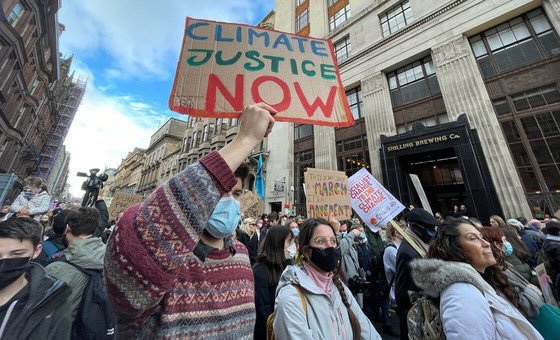[ad_1]
This new wave of reprisals follows years of persistent crackdowns on civil society and human rights defenders, using security as a pretext to undermine their legitimate right to participate in public affairs, they said in a statement.
Egypt is hosting COP27, which will be held in the resort town of Sharm el-Sheikh from 6 to 18 November.
‘Climate of fear’
“Arrests and detention, NGO asset freezes and dissolutions and travel restrictions against human rights defenders have created a climate of fear for Egyptian civil society organisations to engage visibly at the COP27,” the experts said.
Egyptian NGOs have previously suffered harassment, intimidation and reprisals for cooperating with the UN, they added.
The five experts who issued the statement are all Special Rapporteurs, appointed by the UN Human Rights Council in Geneva.
They said the main concerns of civil society activists were lack of information and transparent accreditation criteria for Egyptian NGOs, a coordinated increase in hotel room rates, undue restrictions to freedom of peaceful assembly outside the conference venue, and unjustified delays in the provision of visas to those travelling from abroad.
A crucial role
They underscored the essential role civil society plays in advancing climate action and urged Egypt to ensure safe and meaningful participation at the conference, including for independent groups.
“Instead of further limiting their rights, civil society actors and human rights defenders, including those working on climate rights, must be given an opportunity to raise awareness about their views and protection needs,” the experts said.
“We strongly believe that COP27, organised by the United Nations, should uphold the public’s right to participate in the conduct of public affairs, as recognised by Egypt.”
The experts have also backed calls by civil society for the UN climate body that oversees the conference, UNFCCC, to develop human rights criteria that countries hosting future COPs must commit to meeting as part of the host agreement.
About UN Rapporteurs
The statement was issued by Ian Fry, Special Rapporteur on the promotion and protection of human rights in the context of climate change; Mary Lawlor, Special Rapporteur on the situation of human rights defenders; Fionnuala Ní Aoláin, Special Rapporteur on the promotion and protection of human rights while countering terrorism, Clément Nyaletsossi Voule, Special Rapporteur on the rights to freedom of peaceful assembly and of association, and Irene Khan, Special Rapporteur on the promotion and protection of the right to freedom of opinion and expression.
They are among the independent experts appointed by the Human Rights Council to monitor and report on specific country situations or thematic issues.
Special Rapporteurs are independent of any government or organization, work on a voluntary basis, and serve in their individual capacity.
They are not UN staff and are not paid for their work.
[ad_2]
